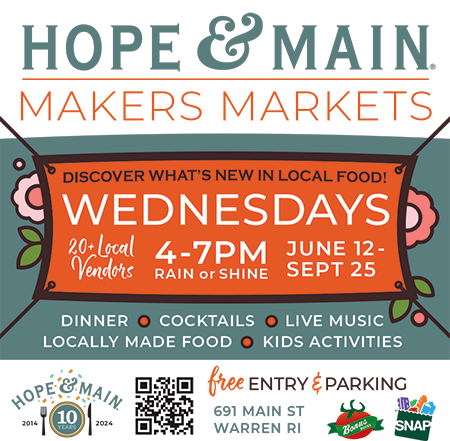On Friday, January 28, the regular weekly COVID-19 press conference conducted by Dr. Nicole Alexander-Scott, director of the RI Department of Health (RI DoH), was unusually chaotic.
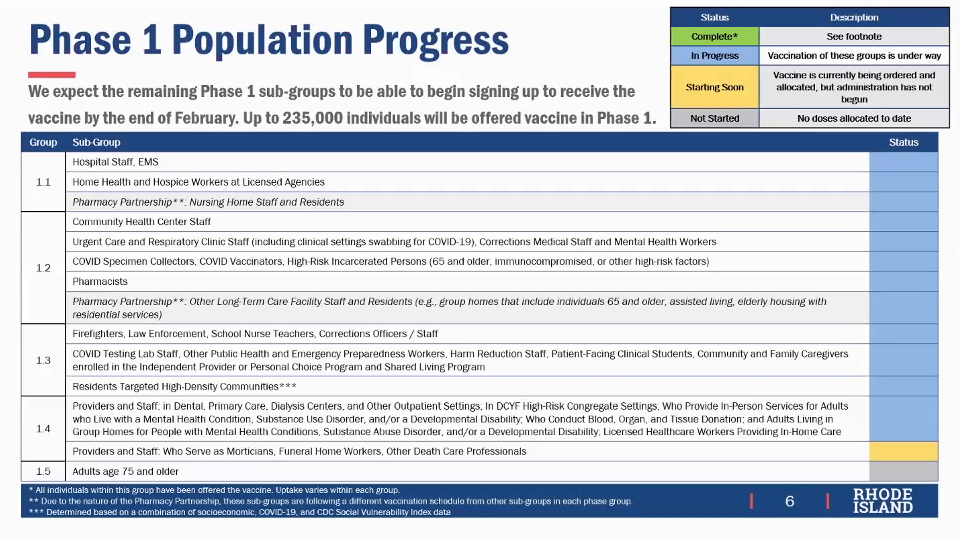
In prepared remarks that were uncharacteristically defensive for the normally diplomatic Alexander-Scott, she avoided mentioning. but tacitly addressed, recent criticism in the media for what is widely seen as a slow rollout of the vaccination program in RI. In a Twitter exchange on January 25 involving several members of the press and the General Assembly, I said that the low ranking of RI by the US Centers for Disease Control and Prevention (CDC), 45th place among the states in percentage of doses administered out of doses received (then 45.28%), looked to be a data-reporting lag rather than a substantive problem; by January 28, three days later, RI had improved to 35th (52.16%). Alexander-Scott said, “A total of 86,315 doses have been administered in Rhode Island: 64,435 first doses and 21,880 second doses. As I have said in past weeks, we are overall in a good place and have a strong system in place. The CDC continues to publish rankings for states for doses administered, Rhode Island is close to the national average for total doses administered per capita. And we are just outside the top 10 nationally for second doses administered.” As of January 28, the CDC reports that RI has administered 7,565 doses per 100K population, exactly in 25th place among the states, and 1,752/100K second doses, in 9th place.
Alexander-Scott said there is a trade-off between getting doses out rapidly as opposed to getting them out most effectively. “While we all want as many doses as possible administered as quickly as possible, speed is only one of the measures of success we have prioritized. In addition to how many people you vaccinate, who you vaccinate matters… There are specific aims to the first phase of our vaccination campaign: ensuring the stability of the hospital and healthcare systems, and protecting the residents of nursing homes and other congregate living facilities. That means going to each nursing home and each assisted living facility in the state. That also means working through employers to get emergency medical services personnel and public safety workers scheduled for their shots. That also means getting very specific types of outpatient health care providers vaccinated.” Alexander-Scott credited the effectiveness of the system for keeping wasted vaccine doses very low, estimated at 0.2%.
RI DoH medical experts, notably Dr. Philip Chan, who is the consultant medical director for the vaccine program, have expressed disfavor about using large facilities, such as Massachusetts is doing at Gillette Stadium, both because it is difficult to get the people who most need vaccination to such a facility and there is risk of the vaccination process itself becoming a super-spreader event as a large number of people gather. Alexander-Scott said, “When you bring vaccine to people in congregate settings, and when you coordinate vaccination through people’s employers, that takes a little more time than just opening a large clinic at a public site somewhere, but we recognize that because it accomplishes our goal of making sure that we have a hospital and healthcare system for people when they need care. And it accomplishes our goal of protecting people in the congregate settings that have been most devastated by this pandemic. On the issue of timing and how quickly doses are administered, the good news is that we are very close to starting the portion of our vaccination campaign that will focus primarily on age. This approach is much less complicated and means vaccine will get administered more quickly.”
Alexander-Scott was obviously blindsided by the City of Warwick independently opening a web page to reserve vaccination appointments for persons age 75 and older. She outright said three times that no action was necessary at this time to schedule vaccinations, before being made aware of the Warwick situation by press questions. (See “Warwick Goes It Alone for Vaccine Reservations”, Jan 28, by Michael Bilow.) She said that the plan was to use an existing state website set up for those needing COVID-19 services to sign up for vaccination as they became eligible: “Starting this weekend, some limited vaccination will be happening for people who are 75 and older at our five regional clinic sites; that’s roughly 5,000 doses. We have an emergency registry at the Rhode Island Department of Health that people can sign up for to indicate that they need extra help during an emergency. That already existing list is primarily being used to do this initial vaccinating. The people in the registry will be getting contacted directly. We expect that within two weeks additional people who are 75 and older will be able to start registering.”
Near the end of the press conference, Alexander-Scott was directly asked, “Warwick is going to administer the vaccines in East Greenwich. Why is that? And is that then open to East Greenwich residents?” Her response, clearly having no idea about the Warwick situation, was simply, “We’ll get back to you on that detail.” (The answer is that the East Greenwich facility is regional, serving seven municipalities.)
There was good news, Alexander-Scott said, with continuing improvements in incidence measures. “We had 618 new cases to report from yesterday. That’s out of 18,678 tests. That means we had a test percent positivity of 3.3%. Our weekly percent positive number is 4.1%, which is down from 5% last week. This is very encouraging. It’s the exact direction that we need to go.”
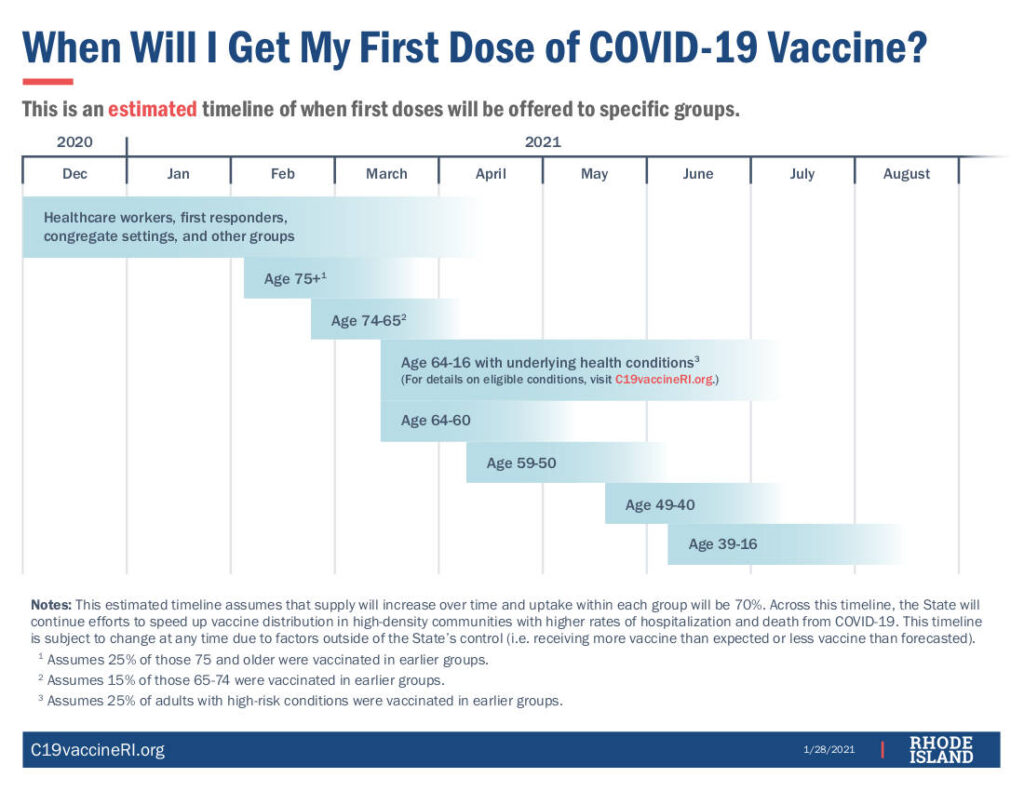
Much of Alexander-Scott’s prepared remarks described Phase 2 of COVID-19 vaccinations, expected to begin in a matter of weeks. As we extensively reported in detail last week – “Vaccine Phase 2 First Look”, Jan 22, by Michael Bilow – criteria for priority will be based upon age, high-risk medical conditions, and geography. Most people age 75 or older can expect to be vaccinated beginning in mid-February in Phase 1.5, the final sub-phase of Phase 1. Depending upon vaccine supply, Phase 2 is expected to begin vaccinating people age 65 or older in early March. Alexander-Scott said, “Our entire approach was developed based on the science and the data. Almost two-thirds of all our hospitalizations are among people who are older than 60, and 94% of our fatalities have been among people in this age group older than 60. So that’s where age is our primary consideration.”
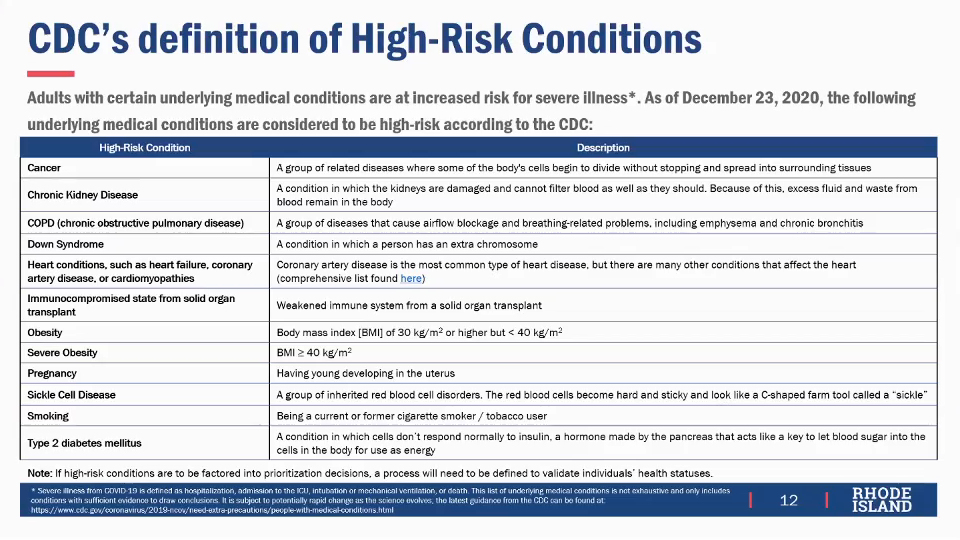
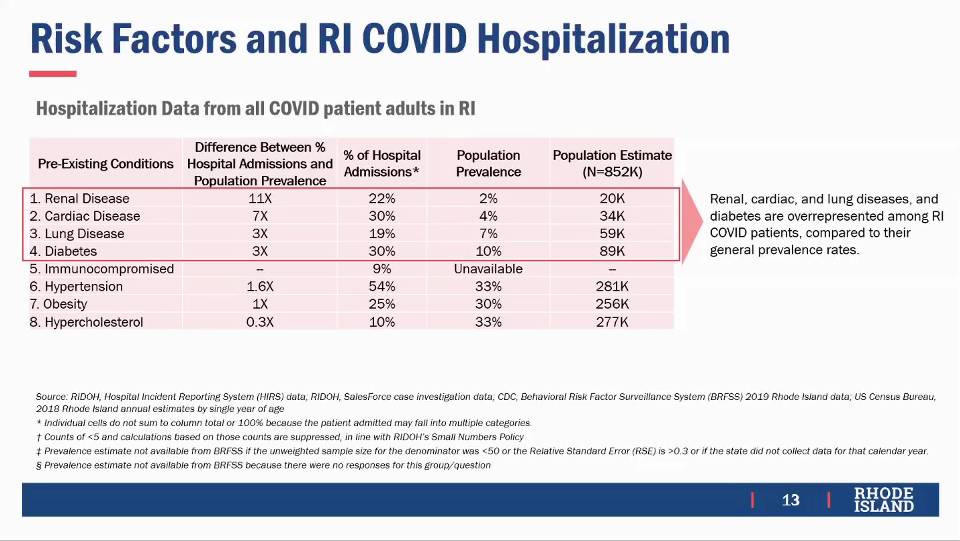
The next cohort in late March or early April would include all people age 64 and younger who have one of five high-risk medical conditions as well as healthy people age 60 or older. “People who are 16 to 64 years of age who have kidney disease, heart disease, diabetes, lung disease, or who are immuno-compromised will have accelerated access to vaccine. People who are immuno-compromised include patients receiving chemotherapy for cancer. It includes patients on immuno-suppressant medications due to organ transplants, and includes pregnant women. People who have kidney disease, heart disease, diabetes, lung disease, or who are immuno-compromised will be able to be vaccinated at the same time as people who are 60 to 64 years of age,” Alexander-Scott said.
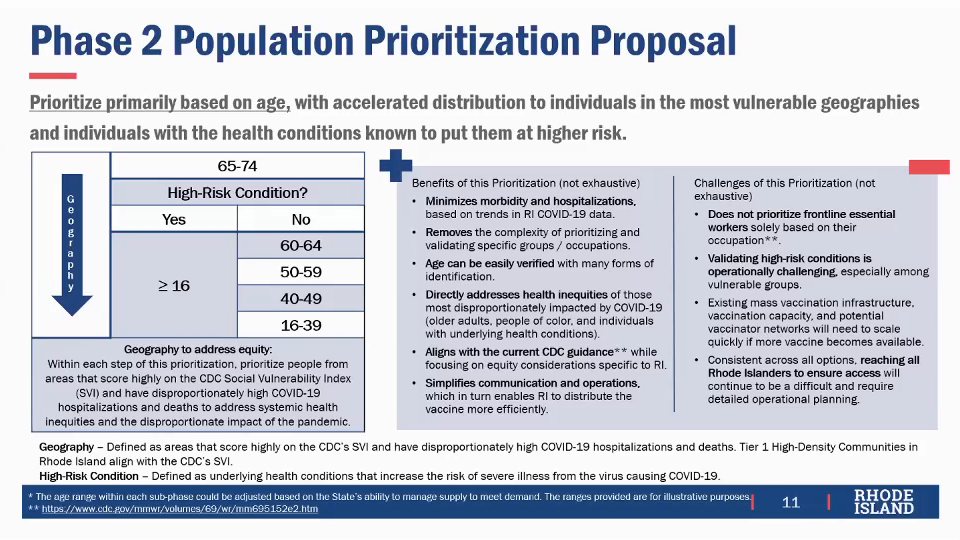
Taking into account age, high-risk medical conditions and geography together is intended to serve the goal of minimizing hospitalization and death. “The last consideration in our next phase is geography. As I shared, the data here is clear. People in certain communities are at greater risk. It’s not because of genetics. It’s not because of anything particular to those individuals. It is connected to the environments and the conditions in those environments. Unfortunately, we have the example that the hospitalization rate in Central Falls is 67% higher than the statewide average. The hospitalization rate in Providence is 58% higher than the statewide average. Getting people in harder hit communities vaccinated quickly is the right thing to do. It’s the right thing to do ethically, and it’s the right thing to do to manage this pandemic most effectively,” Alexander-Scott said. “While the first phase of our campaign was focused on ensuring the stability of the healthcare system, making sure that we would not be overwhelmed and able to handle it, as well as protecting the residents of nursing homes and other congregate settings, the aims of this next phase are to protect those most at risk for hospitalizations and deaths from COVID-19. This is a critical point.”
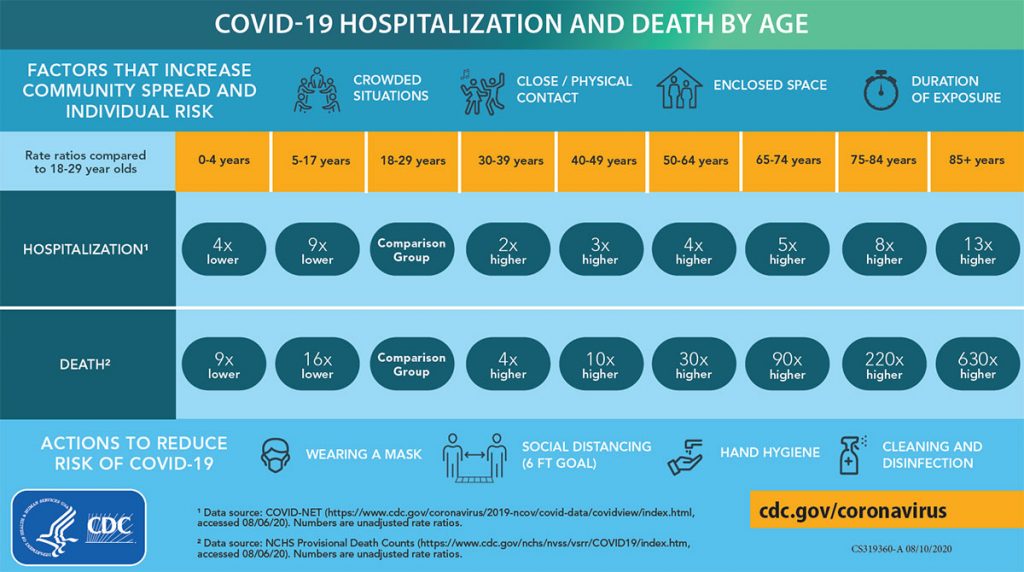
The decision to not take occupation into account as a criterion for priority in Phase 2 has been frequently criticized, and Alexander-Scott addressed that specifically. “Something else to consider about our approach is that it is very broad. It captures many members of our various critical infrastructure occupations. Take teachers: Many teachers will get vaccinated early on using our framework that I’ve just shared; 58% of cases where teachers and staff are either 55 years of age or older, live in a community harder hit by COVID-19, or have one of the high risk conditions that I discussed. This is important news. Although the data make clear that schools are not higher risk environments, we all recognize how important it is to get teachers and all Rhode Islanders vaccinated as quickly as possible. What we want to do is do it as effectively as possible given the supply that we have.”
What was supposed to be the main news, that early closing restrictions for businesses would end effective Sunday, January 31, was almost lost amid criticism for not doing it immediately. One press questioner asked, “On the rollout with the restaurants, why not now? They will lose a whole weekend’s business.” As Alexander-Scott began to answer, the questioner pressed why the easing of restrictions required several days advance notice: “Restaurants are like, ‘Okay, 10:30.’ They don’t need to have a seminar to figure it out. Right?” As RI Commerce Secretary Stefan Pryor came to the lectern to respond, the questioner continued, “Why not tomorrow, Secretary? Give them another weekend, they’ve waited, this was supposed to be two weeks on a pause and it’s been two months. It’s thousands of dollars that they’re not getting reimbursed for.”
“It’s a fair point, we want to lift restrictions as soon as is feasible. I think it’s terrific that we have reached this point where we can roll back the early closure. It has affected an array of business categories. It’s not just the restaurants, of course, that have been affected. I just want to actually re-articulate the categories of business that are affected: restaurants, recreation and entertainment, historical and cultural sites, personal services, gyms and fitness centers, and sporting facilities,” Pryor said, noting that time was needed to coordinate with DoH and neighboring states. Concern has been expressed previously about the risk that people would cross state lines, possibly carrying the virus, to exploit different closing times. He also emphasized the importance of maintaining public health measures such as wearing face coverings and physical distancing regardless of expanded hours. “One of the things that our team has always emphasized is to communicate effectively and, quite frankly, the dialogue inside our team has been about the fact that people still need to exercise caution, they still need to observe all of the pre-existing rules. The pandemic isn’t over.”


